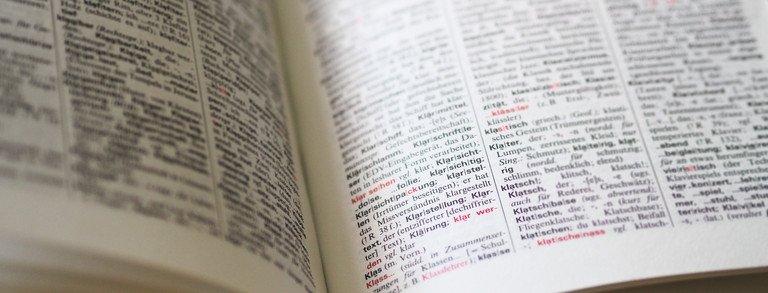butch, the | butch (adj.)
butch, the | butch (adj.)
Butch is a (self-)description of mostly lesbian persons with rather masculine gender presentation and/or rather masculine gender consciousness.
This (self-)description is also used by non-binary persons, non-lesbian or female persons. The English term originally means 'masculine'. The opposite of butch is often femme. The term probably became established in American subcultures in the 1940s, and in the beginning referred primarily to women who, outside of protected places like lesbian bars, were mistaken for men because of their outward appearance. Today, the term butch is not always used to refer to people, who are actually perceived as men. Rather, the term describes people who express an alternative, non-stereotypical, and non-heteronormative kind of femininity (Rost 2018). Therefore, the goal is not to be read as a man.
Individuals who express themselves through their non-normative gender performance face discrimination because of their alternative femininity, particularly outside but also within the LGBTQI community. In the 1970s and early 1980s, there was a (mostly white) feminist movement that excluded certain ways of being 'other'. This concerned, for example, Black lesbians and lesbians with non-normative feminine gender performances. In the 1990s, publications, such as Gender Trouble: Feminism and the Subversion of Identity by Judith Butler helped interpret masculinity as non-exclusively ascribed to men. Butler argued that sexuality and gender are performative (Manders, 2020). Nevertheless, the exclusion of lesbians, especially non-normatively feminine lesbians, persisted in large segments of society.
The (self-)description "butch" is still controversial. There has been a prejudice since at least the 1970s that butch-femme relationships are copies of heterosexual/normative relationship/power models. Such statements deny these relationships any queerness or emancipative intention, i.e., room for maneuver/desires to live out their own desire, needs, and preferences independent of norms (Glösel, 2011). Psychologists Levitt and Hiestand speak out against such prejudices because lesbian butch-femme relationships are decidedly love relationships between women. These couple relationships always face public discrimination. It can be assumed that this has consequences for the nature of the relationships and that independent gender categories are formed, "which [expand] the dichotomous system of woman and man" (Rost, 2018 – own translation).
Today, the use of the (self-)description "butch" is on the rise again. One reason for this is the (re)appropriation of the term by lesbians and "the shaping of a distinct subculture [...] since the 1980s and 1990s [, in order to] break down the sexual conformity of the feminist 1970s, during which a variety of sexual acts and any kind of play with masculine elements of one's gender identity were frowned upon" (Rost, 2018 – own translation).
In the Butler, Butch, Beyoncé discourse series, phenomena, and concepts like this are discussed. The (self-)description "butch" is prominently featured in the title of the series.
Quellen
-
„Lexikon.“ In: 100mensch.de. Letzter Zugriff: 27.05.2021.
-
Manders, Kerry (2020): „The Renegades.“ In: nytimes.com, Letzter Zugriff: 06.07.2021.
-
Rost, Katharina (2018): „Butch.“ In: micori.co. Letzter Zugriff: 27.05.2021.
-
Glösel, Kathrin (2011): „Eine Kopie der Norm?“ In: oeh.univie.ac.at. Letzter Zugriff: 27.05.2021.
Das Glossar soll sich im gegenseitigen Austausch mit Leser*innen weiterentwickeln.
Wir stellen regelmäßig unter dem #klargestellt die Definition eines Begriffs zur Diskussion. Sie haben Fragen oder Anregungen? Diskutieren Sie mit und tragen Sie zu einem besseren Verständnis der Begriffe bei! Wir freuen uns über Ihre Rückmeldungen an: shk.gleichstellung@verwaltung.tu-dortmund.de




